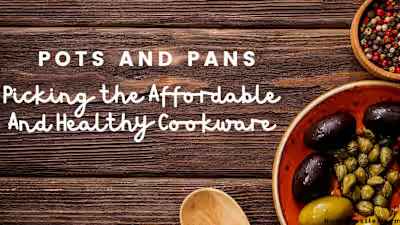Colic Pain: Managing Colic in Babies and Adults

Colic pain in Babies and Adults at Homebustler.com
Colic Pain: Managing Colic in Babies and Adults
Colic pain refers to severe, often fluctuating pain caused by the contraction of muscles in a hollow organ, such as the intestines. It is a common condition in infants of less than 3 months and can also affect adults. While the causes may differ, the symptoms often include intense pain, discomfort, and restlessness.
Today I will be revealing why you have colic pains and some general guidelines for managing colic disturbance in both babies and adults. So follow till the end of this article!
Causes of Colic Pain in Babies
A colic pain in babies can have various causes, and the exact reasons may differ between the two groups. Let’s explore the potential causes below;
Gastrointestinal Immaturity: In infants, colic is often attributed to the immaturity of the gastrointestinal system. This immaturity can lead to spasms in the muscles of the digestive tract, causing colic pain.
Gas and Digestive Issues: Excessive gas, indigestion, or difficulty in processing certain components of your breast milk or formula can contribute to colic symptoms in infants.
Food Sensitivities: Some babies may be sensitive to certain foods in the mother’s diet (if breastfeeding) or in formula, leading to colic-like symptoms.
Overstimulation and Emotional Factors: Overstimulation, fatigue, and emotional factors can also contribute to your baby having colic. Crying is one-way infants communicate, and colic may be a response to these stimuli.
Parental Stress: There is some evidence suggesting that parental stress or tension may contribute to colic in infants.
Cause of Colic Pain in Adults
You can have colic disturbances due to the following reasons;
Gastrointestinal Disorders: The colic pain you feel can be associated with various gastrointestinal disorders, such as irritable bowel syndrome (IBS), inflammatory bowel disease (IBD), or gallstones.
Gas and Indigestion: Similar to infants, excessive gas and indigestion can cause colic-like symptoms for you as an Adult.
Dietary Factors: Certain foods, such as those high in fat or fiber, can trigger colic symptoms in adults. Food intolerances or sensitivities may also play a role.
Stress and Anxiety: Emotional factors, including stress and anxiety, can contribute to colic in adults by affecting the function of the digestive system.
Structural Issues: Structural issues in the digestive tract, such as blockages or spasms, can lead to colic-like pain in adults.
Menstrual Colic: As a woman, you might feel colic-like pain that may be associated with menstrual cramps.
Note: Colic is a symptom rather than a specific condition, and why have you the pain may vary widely. So, If you have colic symptoms that persist or are severe, it’s crucial to consult with a healthcare professional to determine the specific cause and develop an appropriate treatment plan.
Symptoms of Colic Pain in Babies
The following are the signs your babies might be having colic pain;
Intense Crying: Episodes of prolonged and intense crying, often occurring in the late afternoon or evening.
Clenched Fists and Tensed Abdomen: Your baby may clench their fists and arch their back when having colic, and their abdomen may feel tight.
Difficulty Consoling: Your baby may be inconsolable during colic episodes, despite your efforts to soothe your baby,
Crying Consistency: A Colicky baby is usually characterized by bouts of crying that last for at least three hours a day, three days a week, for three weeks or longer.
Sleep Disturbance: Your baby may have difficulty sleeping or may wake up frequently during the night when that been disturbed by colic.
Changes in Feeding Patterns: Some colicky babies may exhibit changes in feeding patterns, such as increased feeding frequency just to comfort and suppress the colic pain.
Symptoms of Colic Disturbance in Adults
The symptoms of colic can vary in adults, but they generally involve episodes of intense, fluctuating pain or discomfort. Here are the common symptoms associated with colic in adults;
Abdominal Pain: You may feel Intense, crampy abdominal pain which is a hallmark symptom of colic in adults. This pain may come and go in episodes.
Location of Pain: Colic pain in Adults is typically located in the lower abdomen but can vary in location depending on the underlying cause.
Bloating and Discomfort: If you have colic, you may experience bloating, a feeling of fullness, and general discomfort in the abdominal region.
Changes in Bowel Habits: Colic in adults can be associated with changes in bowel habits, including diarrhea or constipation.
Passing Gas: Increased gas production and you may experience relief from colic pain after passing gas or having a bowel movement
Discomfort that Comes and Goes: Colic pain in adults often presents as intermittent episodes of severe discomfort rather than constant pain.
Note: It’s important to note that the symptoms of colic can overlap with various other gastrointestinal conditions, and you should consult a healthcare professional for a proper diagnosis and treatment plan.
Managing Colic in Babies
Managing colic in babies can be challenging, but there are several strategies you can try;
1. Comfort Measures: There are natural measures you can take when your baby is having colic pains which include;
2. Feeding Techniques: Your baby may experience colic when they finish eating so it is important you take the following precautions before and after meals;
3. Dietary Adjustments for Breastfeeding Mothers: In some cases, as a breastfeeding mother you need to adjust t your diet for your baby’s sake. For example, try to avoid certain gas-inducing foods, as this might help alleviate symptoms in breastfed infants.
4. Massage and Tummy Time: Gently massage your baby’s tummy in a clockwise motion, which may help move gas through the digestive system. Encourage tummy time when your baby is awake and alert. This can help with digestion and strengthen their abdominal muscles.
5. Avoid Stress: As a mother, always find time to rest. Avoid stress, and remember your health and baby’s own is your priority.
6. Medical Evaluation: If colic persists or worsens, consult a pediatrician to rule out any underlying health issues.
Managing Colic in Adults
Managing colic pain in Adults can take many forms which I will explain below;
1. Dietary Modifications
One of the ways you can manage colic pain is to watch what goes into your stomach. You use the following recommendation;
2. Over-the-Counter Medications
Antacids or simethicone (for gas) may provide relief. However, it’s crucial to consult with a healthcare professional before using any medications.
3. Stress Management
Stress can exacerbate your digestive issues which may cause colic pain. Practicing stress-reduction techniques like deep breathing, meditation, or yoga may be beneficial.
4. Medical Evaluation and Prescription
If colic symptoms persist or are severe, it’s essential to consult a healthcare professional for a thorough evaluation. In some cases, a healthcare provider may prescribe medications to manage underlying conditions contributing to colic.
Important! Always seek advice from a healthcare professional for personalized recommendations, especially when dealing with infants.
FAQs
What’s colic pain like?
It feels like your baby’s dealing with intense, crampy belly discomfort.
How do you ease colic?
Give your little one a break with a warm compress and some gentle belly rubs.
The best way for a colicky baby to snooze?
Pop your baby on his or her back in a comfy, slightly elevated spot.
How long does colic last in a baby?
Colic can typically last around three hours a day, three days a week, for at least three weeks.
How to carry a colicky baby?
Snuggle your baby upright and throw in some soothing sways and gentle rocks.
What helps calm colic in babies?
For you as a breastfeeding mom, it’s all about figuring out and steering clear of those potential trigger foods.
Do colic babies poop a lot?
Not necessarily; colic is more related to abdominal discomfort than bowel movements.
Can breastfeeding cause colic?
Sometimes, certain foods in a breastfeeding mom’s diet might play a role.
What makes colic worse?
Watch out for too much noise, overstimulation, and sudden changes – they can crank up the colic.
Does gripe water help with colic?
It might throw a lifeline to some babies temporarily, but results can be a bit hit or miss.
Conclusion
Colic pain, affecting both babies and adults, stems from various causes. While infants often experience it due to gastrointestinal immaturity or overstimulation, adults may face colic due to digestive disorders, stress, or dietary factors. Recognizing symptoms is crucial for timely management.
For babies, comfort measures, feeding techniques, and maternal dietary adjustments can help, along with medical evaluation if needed. Adults can manage colic through dietary modifications, over-the-counter medications, stress management, and medical evaluation. Always consult healthcare professionals for personalized advice.
Have you faced challenges managing colic pain in your babies or you? Share your experiences and tips for relief in the comments below – let’s support each other! Thanks for reading.
Like this project
Posted Feb 4, 2024
Discover causes and effective strategies for managing colic pain in babies and adults. See answers to FAQs on Colic pain.
Likes
0
Views
10





